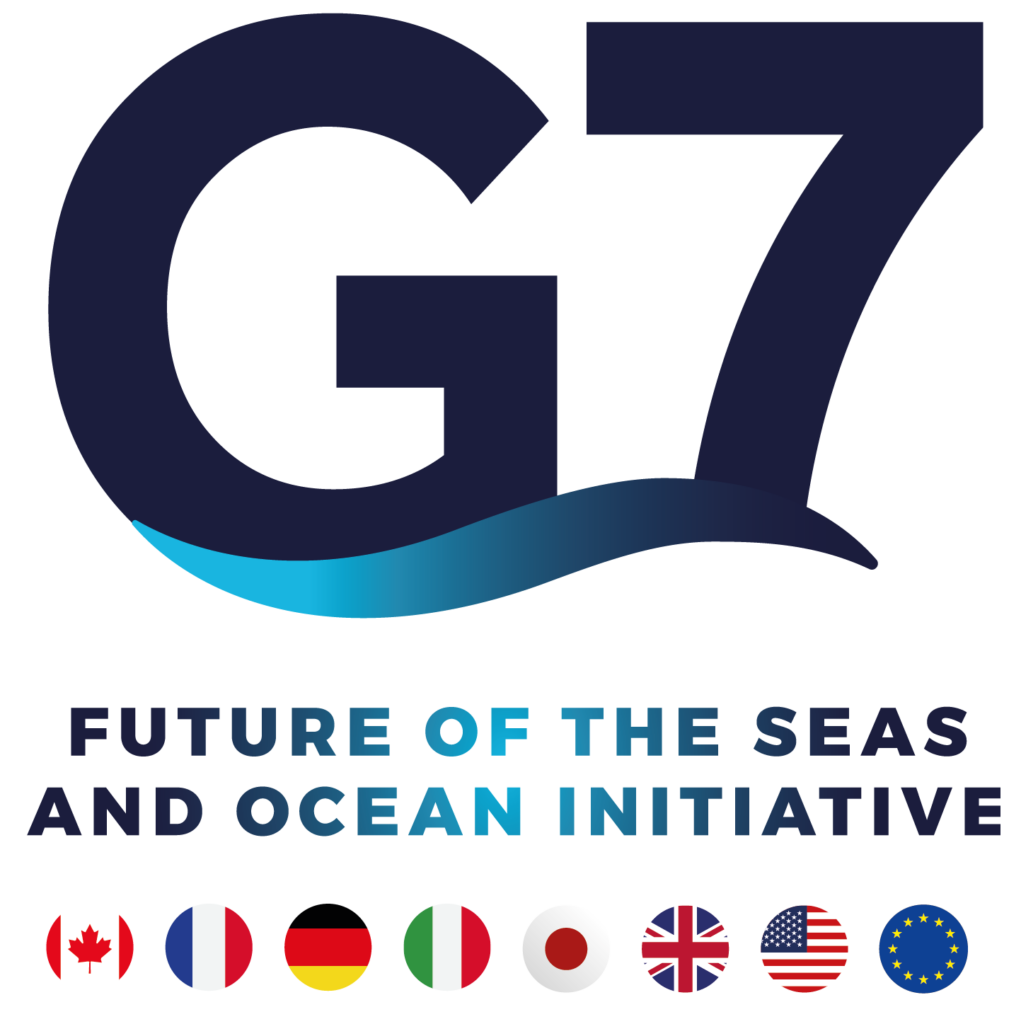The UN Decade of Ocean Science for Sustainable Development (2021-2030) offers a once-in-a-generation opportunity for transformational advances in ocean science needed to explore, understand, predict, sustainably manage and protect the ocean and its resources. Major advances in global ocean observations, data sharing, modelling and forecasting capability, and enhanced use of ocean information and knowledge for societal benefit are at the heart of these transformations.
The G7 FSOI will work to support the goals of the Ocean Decade through its Actions and Activities that will co-evolve with Ocean Decade programmes and projects, leading to:
- A clean ocean where sources of pollution are identified and removed
- A healthy and resilient ocean where marine ecosystems are mapped and protected
- A predictable ocean where society has the capacity to understand current and future ocean conditions
- A safe ocean where people are protected from ocean hazards
- A sustainably harvested ocean ensuring the provision of food supply
- A transparent ocean with open access to data, information and technologies
- An inspiring and engaging ocean where society understands and values the ocean
At the G7 Climate and Environment Ministerial on 21 May 2021, the G7 Ministers and European Commission adopted the G7 Ocean Decade Navigation Plan, which establishes a framework through which the G7 will collaborate and advance their collective work on ocean science, ocean observing and ocean action throughout the Ocean Decade (2021-2030).
Approved Ocean Decade programmes with close links to G7 FSOI activities include:
(links to G7 FSOI Action Areas 1, 3, and 4)
will enhance observations and forecasting capability of the global coastal ocean, and extend the coverage of the global observing system into under-sampled regions. Visit website >
The Deep Ocean Observing Strategy (DOOS) is being developed under the auspices of the Global Ocean Observing System (GOOS), with an emphasis on observations below 2000m and additional attention to more shallow processes and mechanisms (>200m) that influence deeper depths.
(links to G7 FSOI Action Area 3)
will establish and advance a digital framework on which all marine data, modelling and simulation along with high-powered computing capacities, artificial intelligence algorithms and specialized tools will form a new globally shared capacity to access, manipulate, analyse and visualise marine information.
www.dosi-project.org/challenger-150/
The Challenger 150 programme is a global scientific cooperative developed to respond to the needs of the UN Ocean Decade. Following on from the Census of Marine Life, the last 10 year global programme devoted to understanding the biology of the oceans, Challenger 150 provides an umbrella, under which individual research projects can operate, and in doing so contribute to a much larger global research effort.
(links to G7 FSOI Action Areas 1, 3, and 5)
will develop an integrated system design for global ocean observations that will interlink existing and future global observing platforms into a seamless, platform-agnostic observing system, building on new advances in observing system technologies (both in situ, satellite, and modelling / forecasting) and data interoperability and sharing.
(links to G7 FSOI Action Areas 1 and 3)
Within a decade, Marine Life 2030 will unite existing and frontier technologies and partners into a global, interoperable network and community of practice advancing observation and forecasting of marine life.
Bringing together the vast community of researchers and experts on air-sea interactions, the Observing Air-Sea Interactions Strategy (OASIS) aims to further the field by harmonising observational strategies and developing a practical, integrated approach to observing air-sea interactions through capacity development, leveraging of multi-disciplinary activities, and advancement of understanding. sustainable food and energy.Link to programme website
Providing society with the observational and scientific evidence needed to sustainably identify, monitor, mitigate and adapt to ocean acidification; from local to global scales (OARS).
The Biomolecular Ocean Observing Network (OBON) will develop a global system that will allow science and society to understand ocean life like never before. The programme will transform how we sense, harvest, protect, and manage ocean life, which faces multiple stresses including pollution, habitat loss, and climate change. It will also help communities detect biological hazards like harmful algal blooms and pathogens and be a key component of next-generation ocean observing systems.
(links to G7 FSOI Action Area 3)
will lead the international coordination and community building of an ocean prediction capacity for the future. Visit website >
